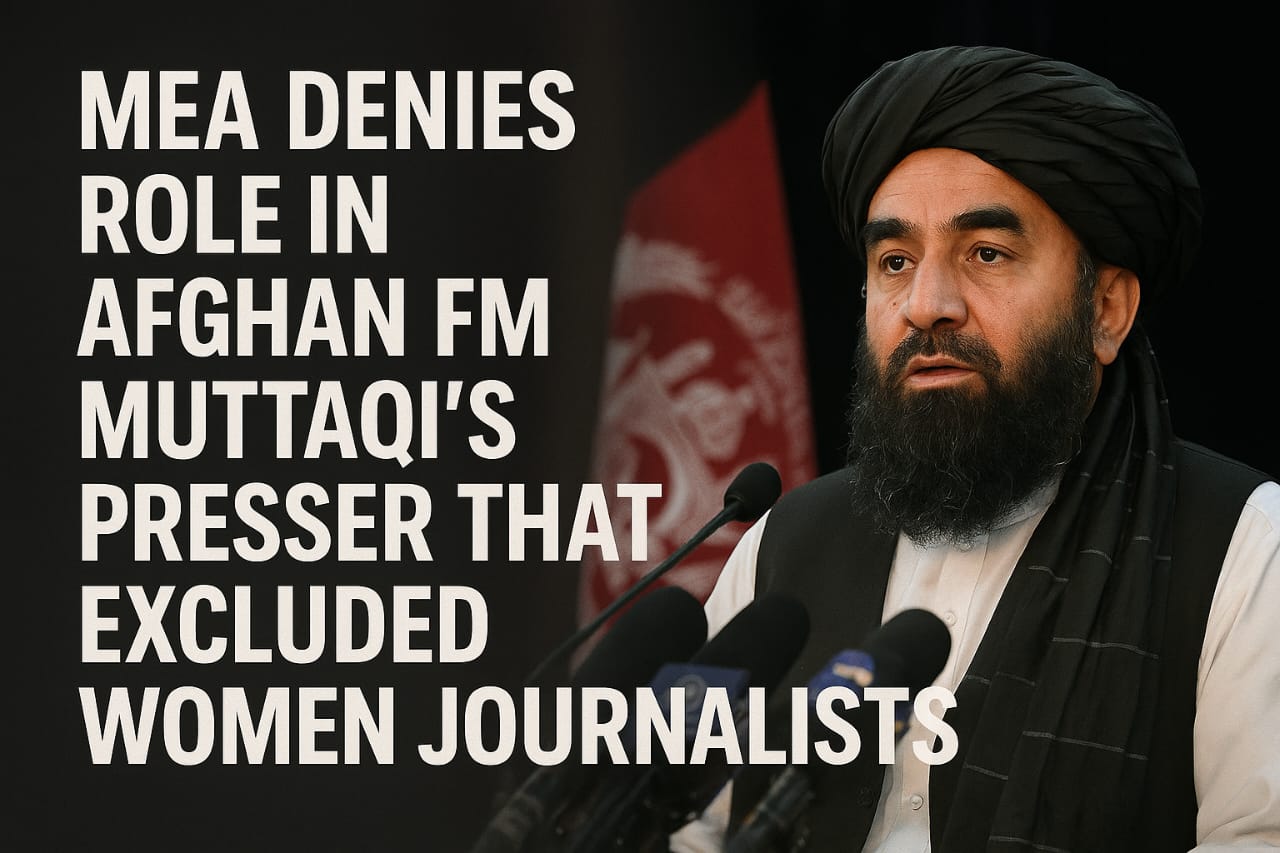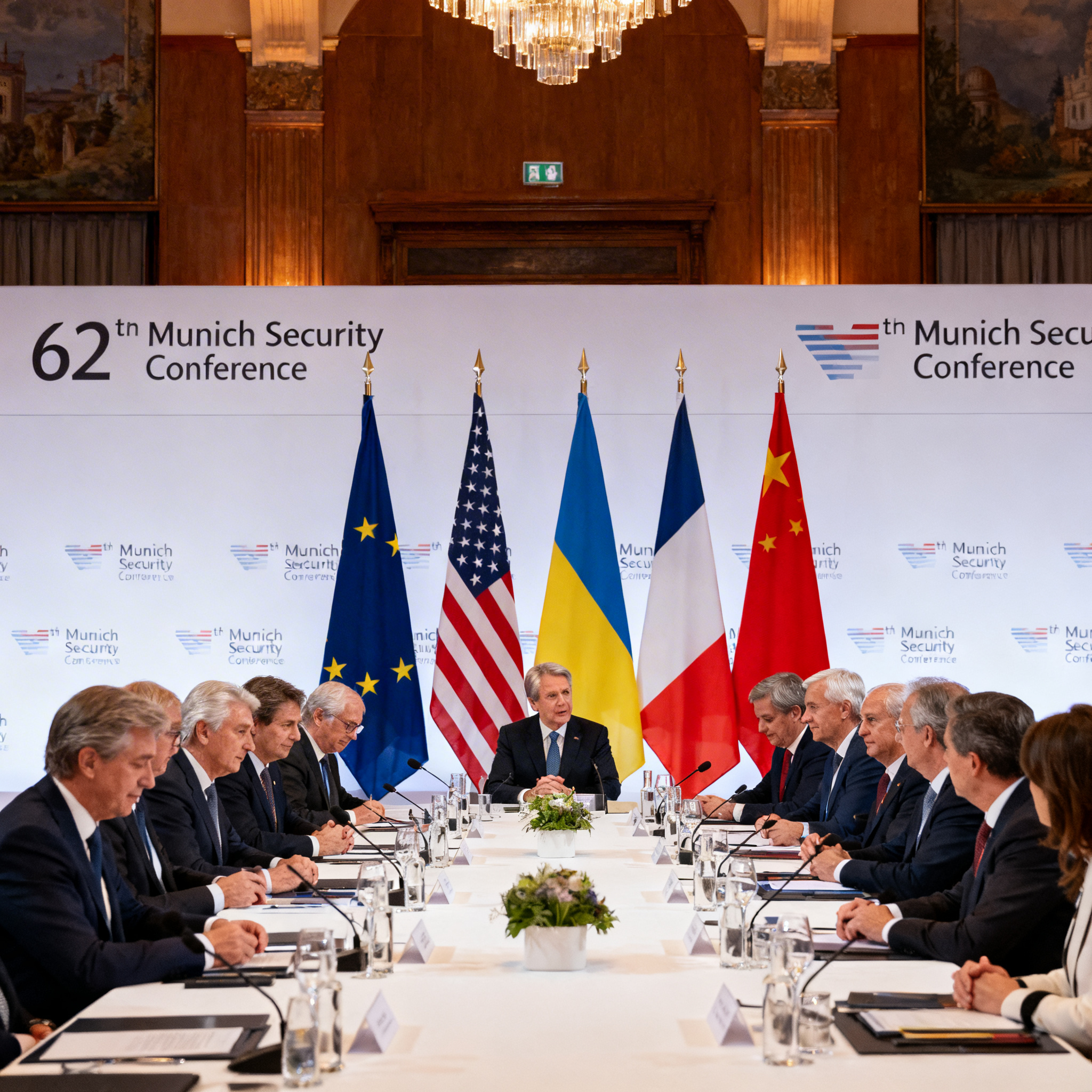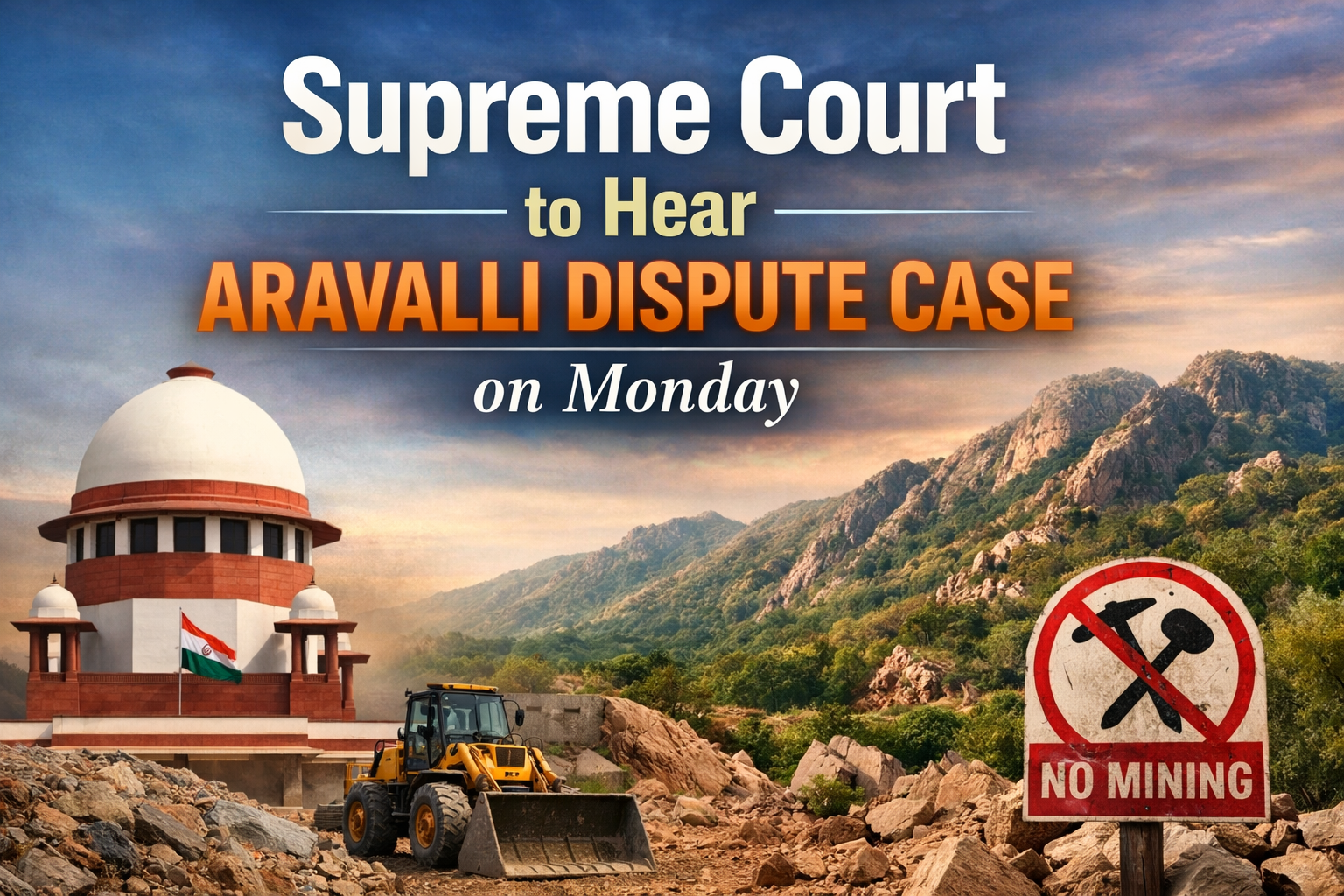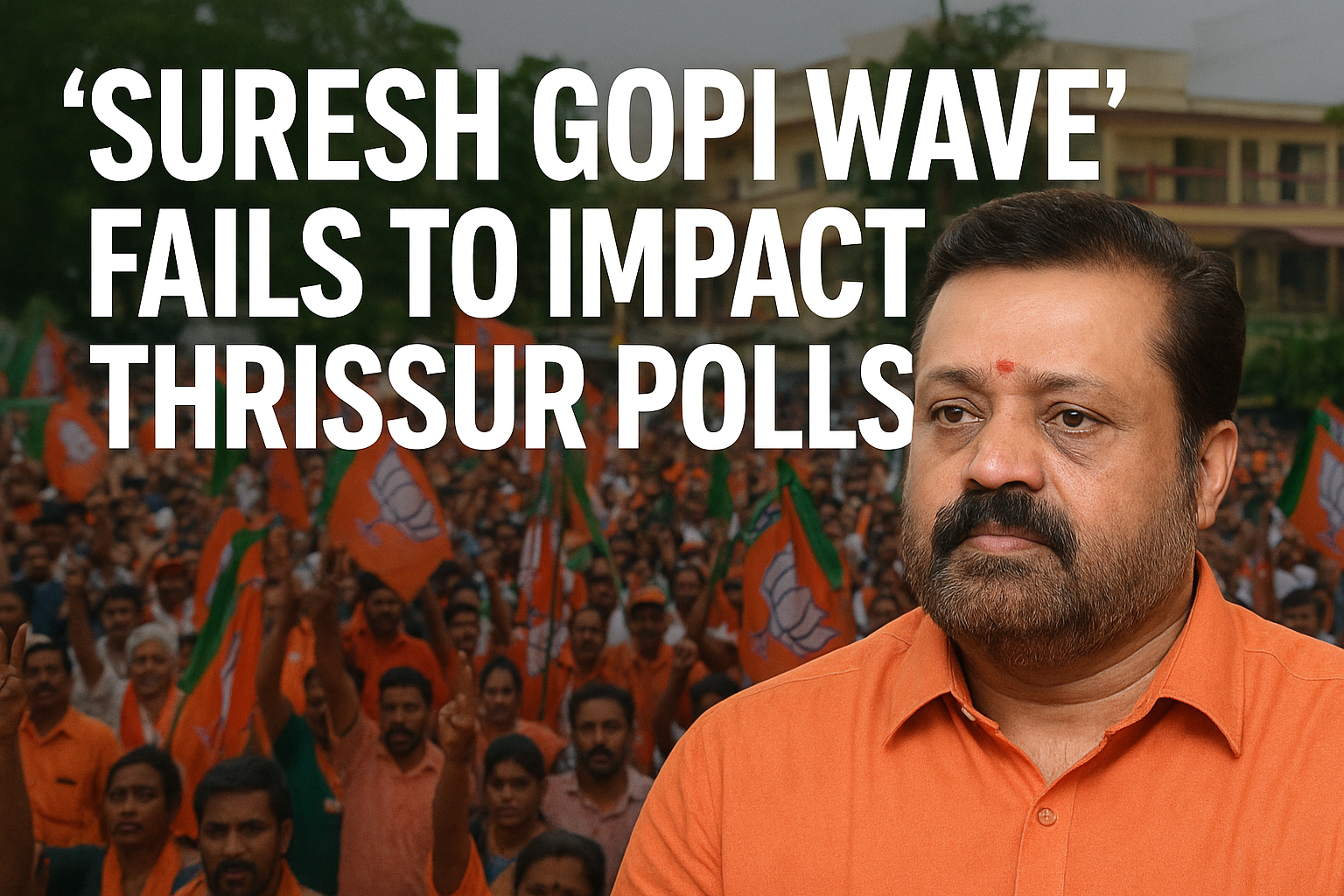MEA denies involvement in Afghan FM Muttaqi’s presser that excluded women journalists

In a significant diplomatic and media controversy, Ministry of External Affairs (MEA) of India has publicly clarified that it had no role in organising the press conference held by Amir Khan Muttaqi, the Foreign Minister of Afghanistan, which has been widely criticised for the exclusion of women journalists.
The event and the exclusion
The press interaction was arranged at the Afghan Embassy in New Delhi, following bilateral talks between India’s External Affairs Minister S. Jaishankar and Muttaqi—Marking the first high-level visit of an Afghan Taliban foreign minister to India since their takeover in 2021.
Media reports say that women journalists were denied entry to this press conference, which included only selected male journalists and Afghan embassy officials. In response to the backlash, Muttaqi claimed the omission of female journalists was a “technical issue,” citing a short-list process for attendees.
MEA’s Stance
The MEA statement was unequivocal: “MEA had no involvement in the press interaction held yesterday by the Afghan FM in Delhi.” Officials elaborated that the event was organised by the Afghan Embassy and thus outside India’s direct oversight.
This distancing by the MEA is politically meaningful, given that India is widely seen as having a strong record on press freedom and women’s participation in media.
Political and media fallout
The exclusion of women journalists triggered strong reactions across Indian political and media circles:
- Congress leader Priyanka Gandhi Vadra called on Prime Minister Narendra Modi to clarify his position on the incident, describing it as “an insult to India’s women journalists”.
- Former Union Minister P. Chidambaram said he was “shocked” that male journalists did not walk out in solidarity when their women colleagues were excluded.
- Media commentators pointed to concerns that this episode could reflect poorly on India’s diplomatic engagement—especially with the Taliban regime—by importing discriminatory norms onto Indian soil.
Diplomatic context and implications
India’s relation with Afghanistan under the new Taliban regime is evolving, and this incident comes at a delicate moment. During the Wales visit, Jaishankar announced that India would upgrade its Technical Mission in Kabul to the status of an embassy.
The denouement of this press-conference controversy highlights several key implications:
Press freedom and gender equality: While India emphasises gender parity and media freedom, this incident exposes tensions when engaging with regimes whose norms differ significantly.
Diplomatic optics: Though the MEA claims no involvement, the fact that the event occurred in Delhi and excluded women appears jarring, given India’s claims of upholding inclusive democratic norms.
India-Afghanistan ties: India’s readiness to engage with the Taliban government is under international scrutiny; any perceived compromise on values (such as equal access to media) could affect India’s image.
Precedent setting: If women journalists are excluded from diplomatic events hosted in India, it may raise expectations of future advocacy or accountability—not just statements of non-involvement.
What to watch next
- Whether the Afghan Embassy issues its own public explanation or apology for the incident beyond the “technical issue” remark by Muttaqi.
- Whether the Indian government or MEA will initiate any policy clarification about access for women journalists to foreign-diplomat events on Indian soil.
- How this incident may influence India’s diplomatic posture towards the Taliban government—whether India emphasises values of gender equality more strongly in its engagements moving forward.
- The broader reaction in Indian media and civil society: Will there be pressure on Indian news organisations to demand equal access or walk out of such pressers in the future?
Regional Cooperation and Dialogue
Meanwhile, regional leaders continue discussions on the evolving situation in the Middle East and South Asia. Recently, Benjamin Netanyahu paused a high-level security cabinet meeting to talk to PM Modi over the Gaza plan — a conversation highlighting India’s growing role in international diplomacy and peace efforts.
👉 Read More: Benjamin Netanyahu talks to PM Modi
Conclusion
The MEA’s denial of involvement in the press conference hosted by the Afghan Embassy does not end the controversy—it raises broader questions about who is accountable for ensuring inclusive media access at diplomatic events in India, and how India balances its foreign-policy engagements with its declared values of gender equality and press freedom.
Stay updated with Hindustan News Times – your trusted source for the latest news, trending stories, and unbiased updates from across India.




